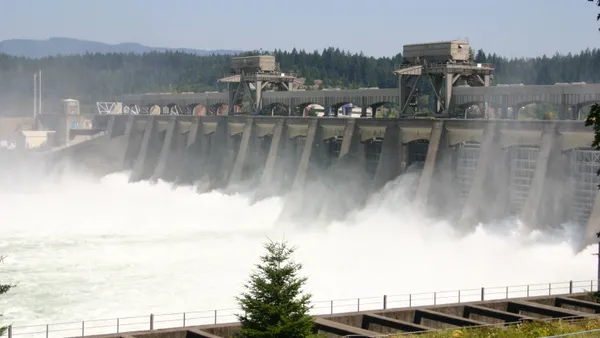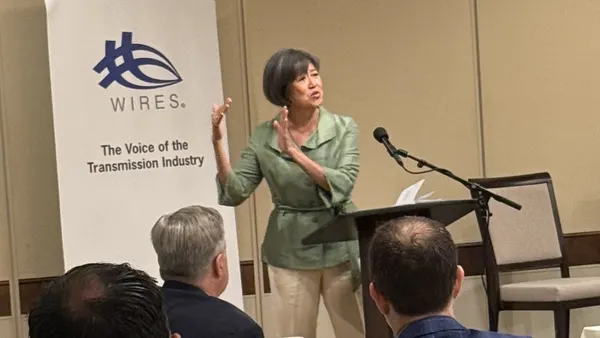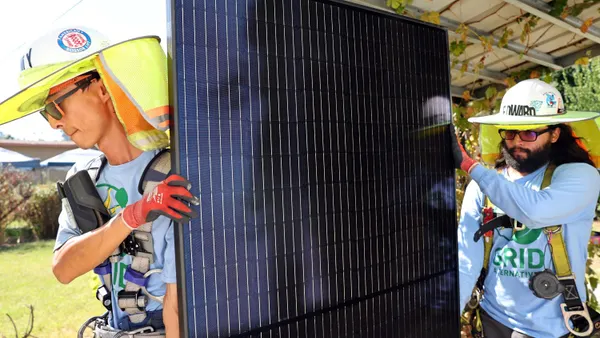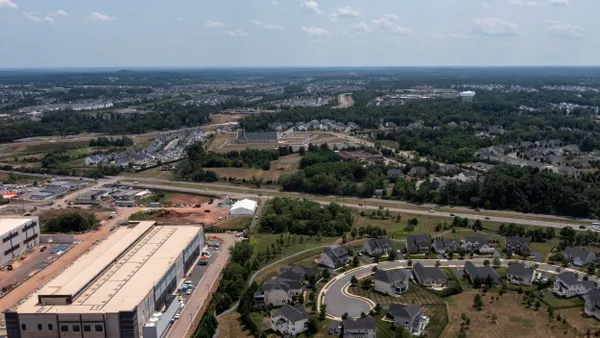Dive Brief:
-
The Department of Energy’s National Energy Technology Laboratory has awarded $80 million for a 10 MW, six-year pilot project that uses supercritical carbon dioxide (sCO2) in gas turbines to enhance efficiency.
-
The award will be managed by Southwest Research Institute (SwRI), the Gas Technology Institute, and GE Global Research.
- The power plant will be located at SwRI’s campus in San Antonio, Texas, and is slated to begin operation in 2020.
Dive Insight:
Finding an economic use for carbon dioxide is one of the problems that has to be solved to make carbon capture technologies viable.
If CO2 is heated under pressure it can become supercritical, with properties of both a gas and a liquid. In that state, it can be used as the working fluid in a gas turbine.
In a supercritical state CO2 also undergoes drastic density changes over small ranges of temperature and pressure. Those changes can be exploited to extract a large amount of energy from equipment that is relatively small in size, meaning supercritical CO2 engines can reach higher thermal efficiencies than conventional technologies.
The Gas Technology Institute will lead the six-year project and provide system engineering and test management. GE Global Research will be responsible for turbomachinery design and fabrication.
The Southwest Research Institute will host the project and be responsible for the test facility design, implementation and operation, as well as evaluation.
The facility is part of the DOE’s Supercritical Transformational Electric Power (STEP) program, aimed at meeting national climate and energy goals by providing cleaner, more affordable power sources.
“We are proud to be part of a project that will demonstrate the world’s first large-scale sCO2 power plant,” Adam Hamilton, SwRI president, said in a statement.













